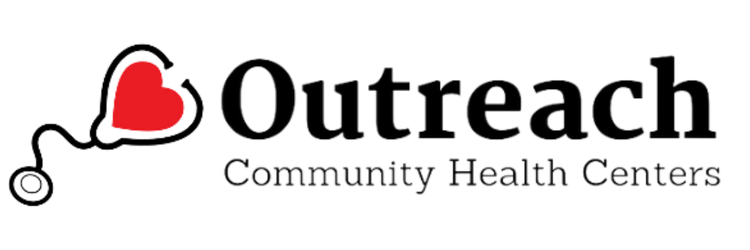
Community Services
Dynamic services responsive to community needs.
Programs and services under the umbrella of Outreach’s Community Services Division are part of what distinguishes Outreach Community Health Centers from other area Federally-Qualified Health Centers (FQHCs) in the community. Although Community Services programs may come with some restrictions regarding who qualifies for service, all are open to anyone in the community – regardless of where they receive health or behavioral health services.
Outreach’s Community Services programs are intended to be dynamic and responsive to community needs as these arise. Some have been around since our beginnings, while others have been established in more recent years as the needs of our community have changed.
One thing all Community Services programs have in common is that each is offered free-of-charge to those in need. Most receive financial support through one or more governmental programs, but virtually all also require some level of charitable support from the community to endure.
Targeted Case Management
Targeted Case Management and Crisis Care Management provide a person-centered approach to individuals living in the community who have been diagnosed with a serious and persistent mental illness and/or face substance use challenges. Targeted case managers support each individual’s recovery by facilitating individualized goals related to physical and behavioral health, community involvement, employment, benefit acquisition and money management. Crisis Care Managers within the targeted Case Management Program, support individuals experiencing a crisis to achieve a level of stabilization or referral to the most appropriate level of community case management. All case managers make sure individuals have safe and affordable housing as well as provide crisis prevention, management and intervention.
Benefits Assistance
Available to both patients and non- patients alike, Outreach Community Health Centers’ Benefits Specialists help people gain access to health insurance offered through the state or though the federal marketplace exchange, while specially trained SOAR Specialists help those disabled by behavioral health conditions apply for disability income support.

Homeless Program
Our Commitment
Homelessness presents many challenges, including shelter and safety, food insecurity, mental and emotional stress and difficulty staying in touch with family, friend, employers and other sources of support. The numerous challenges can often make homelessness a seemingly insurmountable obstacle. In fact, per the last Pont in Time count from January 2020, approximately 970 individuals are currently experiencing homelessness in Milwaukee. Individuals experiencing homelessness often do make healthcare a priority. Those individuals may lack resources and need assistance connecting to services. Outreach Community Health Centers is committed to living our mission by providing services and programs to those who are the most vulnerable in our community.
PATH and Street Outreach
Outreach Community Health Centers has two separate mobile outreach teams that move throughout the Milwaukee region seeking out persons experiencing homelessness who are in need of services. Our street outreach team serves a general population, while PATH (Project for Assistance in the Transition from Homelessness), offers clinical support and specialized case management to individuals experiencing both homelessness and mental illness. Every day, these teams conduct both traditional street outreach and scheduled “in-reach” at a long and growing list of selected sites. Libraries, meal sites and transportation are all traditional hubs for outreach, but those experiencing homelessness have also been found under overpasses, in wooded areas, in parks, tunnels and abandoned buildings.
Rapid Re-Housing
Outreach Community Health Centers provides services and Rapid Re-Housing rental subsidy for 95 units of individual and family housing for periods that range from three to eighteen months. The length of subsidy is determined at the time of program entry, and is based on the unique strengths and challenges of each family unit. Referrals for this program come through Coordinated Entry which can be reached by calling 2-1-1. Each individual or family served is literally homeless (living on the street, in a shelter or a place not meant for human habitation) or attempting to flee domestic violence. Individuals and families are provided case management services and counseling services by a Licensed Professional Counselor designed to help them achieve goals that will support self- sufficiency and independence, while addressing any challenges that may have contributed to past housing instability.


